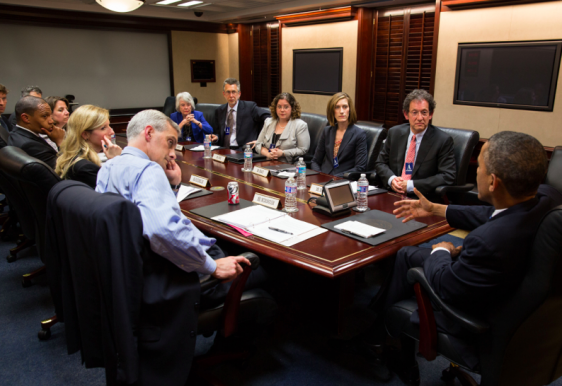PCLOB: Privacy Panther or Panda Bear?

President Obama meets with PCLOB, June 21, 2013
Tomorrow, the Privacy and Civil Liberties Oversight Board (PCLOB), the independent body created to oversee the impact of national security programs on Americans’ privacy, will hold a public workshop on NSA surveillance programs operated under the PATRIOT Act and the FISA Amendments Act. This is testing time for PCLOB: Will it be a privacy panther, quick to pounce on abuses of surveillance authority that have riled Washington for weeks, or a privacy panda bear, wandering through the thicket with indecision and little sense of mission?
PCLOB was created during the Bush Administration on the recommendation of the 9/11 Commission. However, years of political gridlock and delay prevented the board from being independent of the White House, and from being fully constituted after Congress made it independent. Finally, this May, the Senate cleared the final hurdle in standing up the board by confirming PCLOB Chairman David Medine. Medine acted quickly to serve notice that PCLOB’s first mission was to launch an investigation of the NSA’s bulk collection of phone records under Section 215 of the PATRIOT Act and the agency’s surveillance of international communications content under the FISA Amendments Act for the “PRISM” program. Tomorrow’s workshop includes former government officials from the intelligence community, who were likely involved in the surveillance, as well as the privacy and civil liberties groups who decry it. At the 2:15 panel, CDT Senior Counsel Greg Nojeim will urge PCLOB to recommend ending the phone records collection program, limiting the PRISM program, and calling on the government to reveal more about each. The workshop is open to the public, and CDT will be live tweeting the event at @CenDemTech.
Date
Tuesday, July 9
Time
9:00 am
Location
Renaissance Mayflower Hotel
1127 Connecticut Ave, NW, Grand Ballroom
Washington, DC
Agenda
9:30 opening remarks
9:45 panel: Legal/Constitutional Perspective
12:30 panel: Role of Technology
2:15 panel: Policy Perspective
4:30 closing remarks


